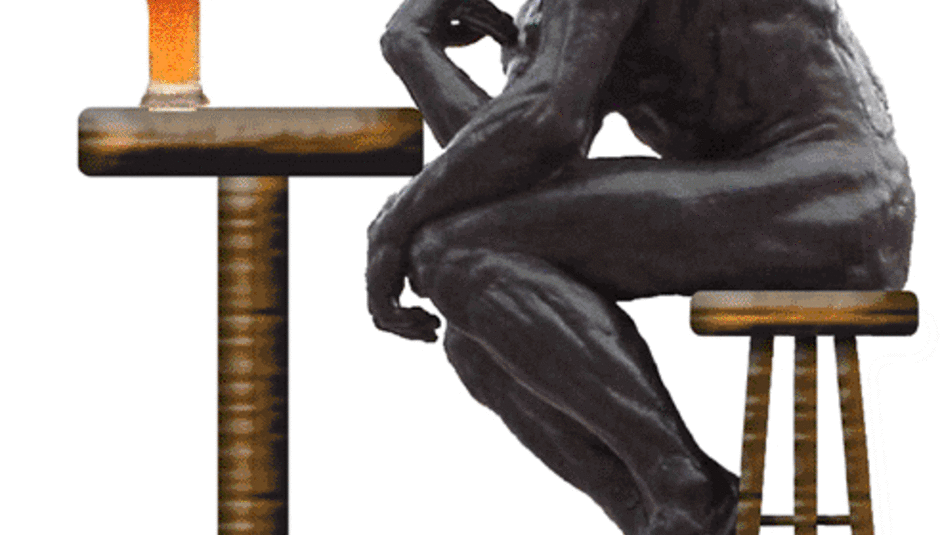Words: Tim Footman
The reason rock critics like Elvis Costello, suggested gurning acrobat of hair metal David Lee Roth, is that rock critics look like Elvis Costello.
While this may not be accurate in all cases (simply keeping up with Mr. Costello’s ever-shifting choices in glasses, hats and facial hair is beyond the financial means of many hacks), it’s probably true to say that the vast majority of rock critics – i.e., people who get paid for critting rock – look more like Elvis Costello than they look like David Lee Roth. And while that statement is freighted with more assumptions about taste and class and intellect and self-awareness and scarves than we’ve got room for, it’s necessary to do a quick Roth-style backflip and define a few terms.
You see, what we’re talking about – the public expression of opinion about cultural product – doesn’t really have a name that does it justice. Let’s use ‘criticism’ for the moment, but any single word that can encompass TS Eliot and Britain’s Got Talent is so vague as to be essentially meaningless. Maybe we should break it down further: critics; reviewers; pundits; judges; arbiters; theorists; tastemakers; hacks; bloggers; spin doctors; PR ninjas; purveyors of artistic snake oil.
And already it gets messy. The veteran film writer Philip French distinguished between the first two thus:
“Reviewing is what writers for newspapers and weekly magazines do when they describe and pass judgement on new work for readers who haven't read or seen it. Critics write about the established or emerging canon for readers presumed to be acquainted with the work under discussion and supposedly take a longer-term view.”
Except that French’s job title is film critic of The Observer where, every week, he passes judgement on new films, to buffs and duffers alike. Is there a discrepancy between what he does and what he is? Or does his hat change colour depending on what he’s doing at any specific moment? Is Greil Marcus still a critic when he’s making a cheese sandwich? When someone who used to be on Hollyoaks is asked for a soundbite on some three-hour TV nostalgia-fest (say, I [HEART] The Early Renaissance or The 100 Greatest Bad 80s Fairlight Solos) does she become a critic for 12 seconds, and then stop?
This is especially significant as the very idea of the professional critic comes under increased pressure from the opinion tsunami that is the blogosphere. Philip French and Greil Marcus doubtless know their shit, probably better than 95 per cent of the people opining in ones and zeroes about The Lady From Shanghai and/or Lady Gaga. But their job titles don’t give them an automatic right to pull rank on the other five per cent; and some of those five per cent might now look like David Lee Roth and no one can make them stop.
Moreover, technology has changed both the role of full- and part-time critics and the dynamic of criticism itself. When French and Marcus began their careers, they were preachers; the only response they expected from their audience was an occasional “Amen!” or maybe a sotto voce bout of tutting. Now they and the rest of their critical brethren are nervous ringmasters and lion tamers, their just-about-privileged position giving them only a flimsy whip with which to discipline the comment-box hecklers.
That said, maybe criticism at its best has always been about a dialectic, the clash between clamouring voices generating more than the sum of its voices. In his touching remembrance of the late Steven Wells in Freaky Trigger, Mark Sinker characterised the opposing camps in the NME in the 70s and 80s in terms of a comic strip by Leo Baxendale, The Swots And The Blots: intellect vs instinct; aesthetes vs anarchists; theorists vs thugs. Sinker’s point is that this conflict created an “impossible, unsustainable chemistry”. And it’s that wonky chemistry, rather than any isolated review by Sinker or rant by Wells, that made things wonderful.
Criticism is an argument that never ends, and while the inane platitudes of Cheryl Cole or your pseudonymous griping three inches from the end of this article may not ultimately be as informed or pungent or memorable as what Greil Marcus thinks about the drumming on ‘Like A Rolling Stone’ they are, perversely, essential to the process. Am I a critic or a reviewer or a pundit or a blogger? Yes, all, and more, and so are you; even when I’m making that sandwich; even when you’re dressed as David Lee Roth.
Tim Footman is the author of The Noughties: The Decade That Changed The World (published in September by Crimson Books) and Leonard Cohen: Hallelujah (November, Chrome Dreams). He looks like Andy Partridge from XTC.






















